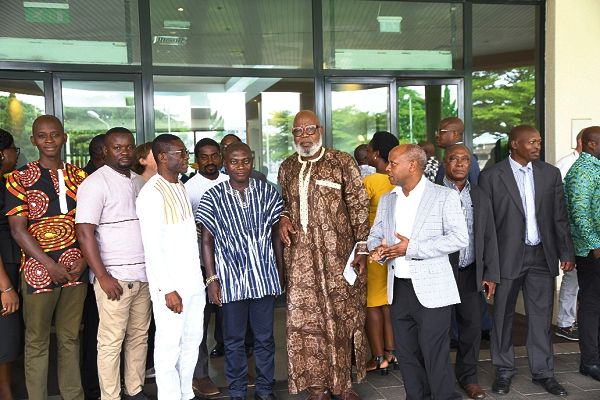
Stakeholders in agric ask govt to check sale of fake seeds
Farmers and other stakeholders in the agricultural sector have called on the government to step up efforts at checking the sale of fake seeds by agro-input dealers.
This is because the sale and planting of fake seeds have a negative impact on agriculture.
Advertisement
At the opening of a two-day Ghana seed sector stakeholders’ workshop in Accra yesterday, the participants cautioned that if the scourge was not arrested, Ghana’s agriculture could suffer disastrously.
The workshop was organised by the Ministry of Food and Agriculture (MoFA), in collaboration with USAID, AGRA and Market Matters Inc.
Although the sources of the fake seeds have been traced to agro-dealers, it has also been found that some seed companies are behind the production of the counterfeit seeds.
There are 3,153 agro-input dealers across the country who sell seeds to other sub-dealers or directly to farmers.
Report
A team of researchers from a seed industry research initiative known as the TASAI African Seed Access Index, presented a report on Ghana's seed sector at the workshop.
The report, which was based on a research conducted between 2016 and 2017, appraised the structure and economic performance of the country's seed sector and evaluated the enabling environment necessary to build a vibrant formal seed sector.
It focused on four grains and legume crops, comprising maize, rice, soyabean and cowpea.
Three of the crops, maize, rice and cowpea, according to the researchers, were selected because of their importance to food security in Ghana, while soyabean was included because it was an important cash crop with implications for the country's economic development.
Findings
Presenting the findings, one of the researchers, Mr Samuel Yao Adzivor, said in 2016, seven cases of the sale of fake seeds were reported.
"This figure is likely to be underestimated as most cases of fake seed are not officially reported," he said.
He said interaction with the seed companies in Ghana indicated that on average, they were not satisfied with the government's effort to stamp out fake seeds in the system.
Additionally, it was found out that the inadequate knowledge of the 2010 Plants and Fertiliser Act (Act 803) and its regulations, on the part of certain law enforcement agencies and customs officials, hampered the successful prosecution of offenders.
Seeds are the most renewable agricultural resource, but the quality of a seed is one of the determinants of farming success.
Yet, high-yield seeds are expensive, a development that places poor farmers at a disadvantage.
Release of new variety
The researchers also found out that only two seed companies released new varieties in Ghana between 2013 and 2015.
Even though the seed regulations indicate that the released process should take between 12 and 24 months, it was established that it took an average of 42 months for the new seeds to be released.
The reasons for the delay were attributed to delays in field trials, committee meetings and delays in setting a date for presenting the findings to the committee.
Seed importation
It was found out that only one company in Ghana imported the targeted seeds mainly from South Africa and India.
The seed companies were not happy with the importation process, which took about 90 days, due primarily to unclear legal and regulatory requirements for importation, the quantities allowed for import and the processing time for import permits.
Seed companies were also not satisfied with the inspection services provided by the Ghana Seed Inspection Division, which has 32 seed inspectors in nine regions with inadequate resources to perform their task.
On the availability of extension services, it was found out that there were an estimated 2,511 agriculture extension workers in Ghana, out of whom only 27 worked in the private sector.
Recommendations
The report recommended the need to invest in quantity and quality of extension services, to promote the adoption of improved seed and good farming methods.
Also, it urged Ghana to take advantage of opportunities for regional trade under the ECOWAS seed harmonisation arrangements.
Additionally, the researchers suggested that strategic interventions were needed in critical stages, including investment in research and breeding.
MoFA
The Director of Crop Services at the Ministry of Food and Agriculture (MoFA), Mr Seth Osei-Akoto in his remarks, said research was key to the development of the seed sector.
Under the Planting for Food and Jobs programme, the government was providing improved subsidised seeds of maize, sorghum, soyabean, cowpea, among other such seeds to smallholder farmers.
MoFA, he said, was working on increasing farmers adoption of the use of certified seeds that were produced from crop varieties, with the right attributes and adaptable to the agro-ecological zones by making certified seed accessible, affordable and available.
The Director of Crop Services, Mr John Wobil, said the seed index report would help track the performance of the seed sector.



